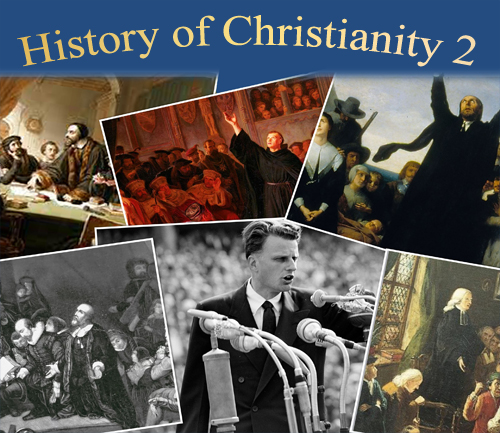Module 8: Great Awakenings
Hi everyone, and welcome back to the eighth module of the History of Christianity 2 Course. In this section, we'll continue to work through the history of the continuing church in America. This module will cover a few renewal movements in the New World that happened around the same time as the events covered in the previous module. This module will cover the various movements now known as the First and Second Great Awakenings.
This module will help you to understand the various causes and effects of the revivals of the church and how God used His people to renew and revitalize certain parts of the church in the American colonies and later American states. It will cover the events, causes, results, doctrines, and main leaders of each of these different movements.
The student will be exposed to different approaches and evaluations of these events and how God's people responded at the time. The student will have opportunity to evaluate the longer-term effects of these movements, approaches, and practices, and the lessons that can be learned from these two Awakenings. This module will also aid the student to work through how the lessons learned are applicable in their own life and ministry.
Introductory Scenario
Imagine that you are part of a church that talks about seeking revival.
How should you understand that term? What would it look like if genuine revival happened in your church and/or town? How can the church discern if revival is truly happening or if they are experiencing some sort of counterfeit? How should the church pursue revival? How should it pray? How should it act? What is the responsibility of the church? What should the church expect from God? Please consider these questions and be watching for material that will help you answer them as you work through this module.
Module Objectives and Outcomes
Upon successful completion of this module, the student will:
- Understand the history of the First and Second Great Awakenings and their long-term effects for the church and wider society.
- Describe the major leaders of the two great awakenings and why they were so influential.
- Describe the main ideas, approaches, doctrines, and writings that came out of the First and Second Great Awakenings.
- Evaluate each of these movements and the lessons that can be learned from them and applied to current situations.
- Place the major events and people of these movements in a general chronology.
Instruction Guides
In this section, you'll find links to important instructional documents for this module. Click the following links to open each document. There is a set of instructions for individual study and a document for group study.
Textbook Content
In this section, you'll find a study guide for the textbook reading for module 8. And then you'll find the link to a practice quiz covering this textbook reading.
This section also contains a review quiz to test your understanding of the textbook material for this module. By clicking the banner below, you will be given a series of questions, in random order. The quiz will be different each time, so feel free to take it more than once.

Click the button next to the best answer for each question, or drag each term to its best definition. Then press the Submit
button at the bottom to see if your answers are correct.
Lecture Content
In this section, you will find the video lectures for the Great Awakenings module. They are designed to be watched in order, but each video should make sense on its own. Click each banner to open access to each video. There are also links with each video if you prefer to watch on the Rumble or YouTube interface or download just the audio to listen offline.
Supplemental Reading
The student will read the two assigned secondary readings found below. Think through the content of these articles and use the insights gained as part of their course material response and application reflection or discussion.




































